Advantage of "close to people, close to school"
The delegation of educational management authority to the commune level is considered one of the outstanding advantages of the two-level local government model. A principal of a secondary school in Dong Bang commune (Hung Yen) commented: "In the two-level government system, the commune level will be closer to the people, so it will closely grasp the situation of local schools in terms of facilities, teaching staff, number of students as well as student quality."
Previously, the commune-level government was still weak in terms of human resources and professional qualifications. However, at present, the commune-level has been significantly strengthened in terms of human resources with professional qualifications, creating more favorable conditions for undertaking the role of educational management. Although there are expected to be initial difficulties in professional work, when all processes are stabilized, the educational management function of the commune-level is expected to bring positive impacts.
To ensure effectiveness, the principal also emphasized the need to build a team of specialized education staff at the commune level, selected from those with qualifications and deep understanding of the industry.
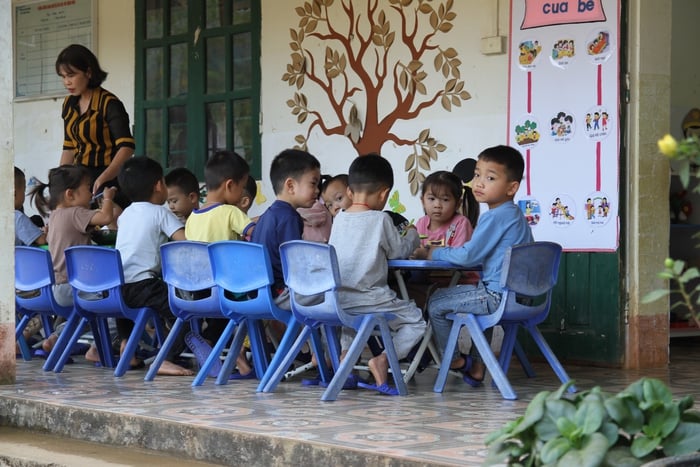
Delegation of educational management authority to the commune level is considered one of the outstanding advantages of the two-level local government model.
Challenges of responsibility and capacity
However, granting more authority to manage education also means that the commune level will have to shoulder many new and heavier responsibilities (due to many tasks being transferred from the old district level). This poses a big challenge for the leaders of the commune-level government system, especially in the context of localities merging administrative units.
In Lai Chau province, from July 1, 2025, 106 commune-level administrative units will be reduced to 38. After the merger, some communes such as Khong Lao will manage a very large number of schools and students, for example, Khong Lao commune has 9 schools with nearly 6,000 students.
Mr. Khong Van Thien, Vice Chairman of the People's Committee of Khong Lao Commune, said that delegating this management authority helps increase the initiative of the facility and reduce the burden on the Department of Education and Training, but also poses many challenges in terms of human resources, management capacity, technology infrastructure and operating procedures, especially in undertaking tasks such as granting diplomas, certificates, resolving school transfers or managing extra teaching and learning.
In Dien Bien province, the leader of a remote commune told PNVN Newspaper that due to the lack of human resources, taking on additional educational management tasks for the commune-level government is a big challenge. "We have also met to discuss the plan to establish an education management team. However, education management will require knowledge, skills and expertise in that field. Meanwhile, our commune does not currently have an abundance of such personnel. In the immediate future, we will need the support of the Department of Education and Training in the beginning," the leader shared.
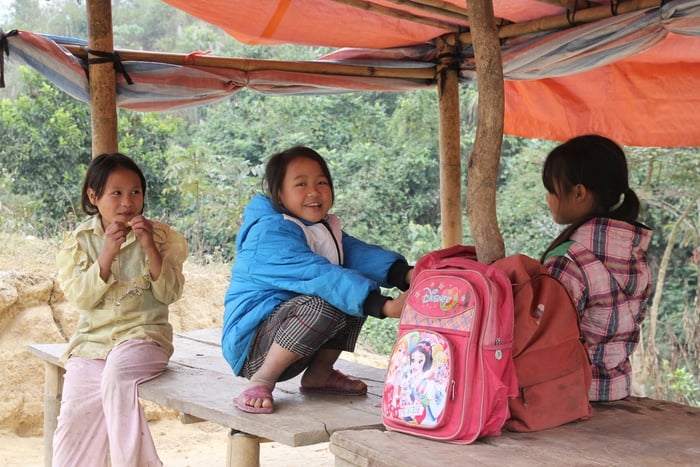
However, in remote and isolated areas with limited human resources, concurrently taking on the function of State management of education is a significant challenge.
To adapt to the new tasks, many localities have proactively implemented solutions. The People's Committee of Tan Lap Ward (Dak Lak) recently organized a conference on educational management with the participation of leaders of 17 educational institutions in the area.
Mr. Tran Duc Nhat, Chairman of Tan Lap Ward People's Committee, said that the ward has proactively assigned and clearly assigned tasks and responsibilities in the field of education, while at the same time publicly and transparently publicizing the procedures for receiving and processing records for students and parents.
In order for the commune-level government to perform its new tasks well, sharing with the press, Ms. Hoang Thi Phuong Thao (former Head of the Department of Education and Training of the old Vinh city), now Deputy Head of the Department of Culture and Society of Truong Vinh ward (Nghe An) said that the previous functions and tasks of the Department of Education and Training have been almost completely transferred to the commune-level government. Including the development of educational development plans, the scale of the school network, management of facilities, human resources, and the allocation and assignment of budget estimates for affiliated educational institutions...
However, according to Ms. Thao, in the past, the Department of Education and Training was a "specialized" unit, and the specialists themselves were clearly divided into areas of responsibility. Meanwhile, at the commune and ward levels, education was a part of the Department of Culture and Society, and the officers in charge, even those who were previously from the Department of Education and Training, also took on many new roles and tasks.
Ms. Hoang Thi Phuong Thao said that currently, education officers in charge of wards in the old Vinh city have had the initiative to set up a common group to facilitate the exchange and sharing of work experiences.
Each person has their own professional strengths and will support and strengthen each other in work areas such as approving the school year plan and school program; managing extra teaching and learning; professional activities; managing facilities and teaching equipment.
Source: https://phunuvietnam.vn/giao-quyen-quan-ly-giao-duc-cho-cap-xa-co-hoi-dot-pha-va-thach-thuc-khong-nho-20250726231910882.htm


![[Photo] Keep your warehouse safe in all situations](https://vphoto.vietnam.vn/thumb/1200x675/vietnam/resource/IMAGE/2025/10/1/3eb4eceafe68497989865e7faa4e4d0e)


![[Photo] Hanoi morning of October 1: Prolonged flooding, people wade to work](https://vphoto.vietnam.vn/thumb/1200x675/vietnam/resource/IMAGE/2025/10/1/189be28938e3493fa26b2938efa2059e)
![[Photo] President of the Cuban National Assembly visits President Ho Chi Minh's Mausoleum](https://vphoto.vietnam.vn/thumb/1200x675/vietnam/resource/IMAGE/2025/10/1/39f1142310fc4dae9e3de4fcc9ac2ed0)

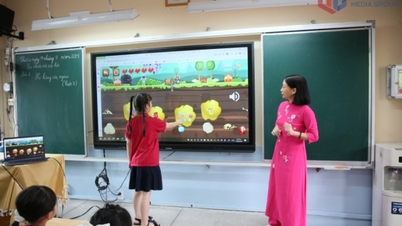



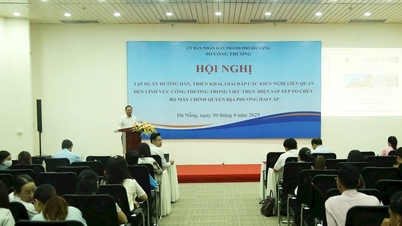

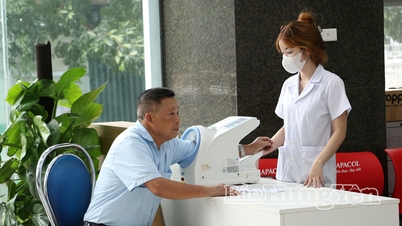




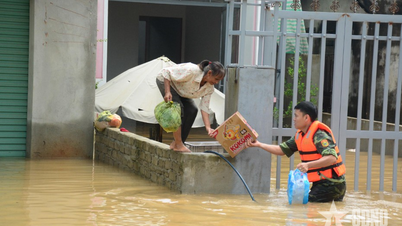

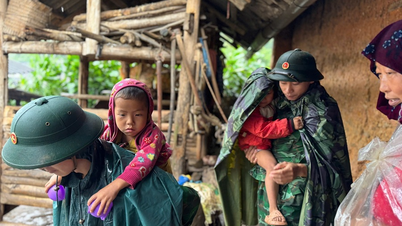
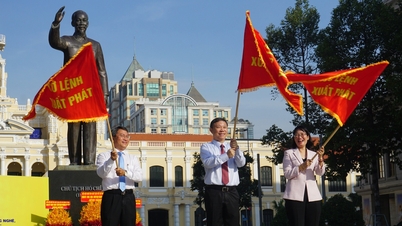

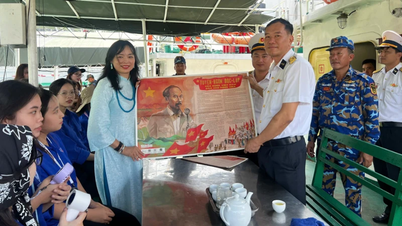

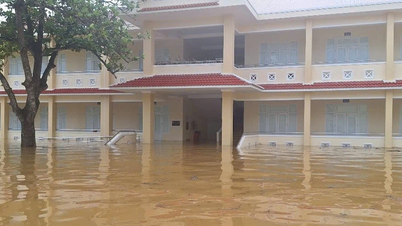


















































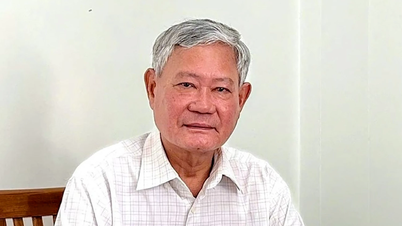

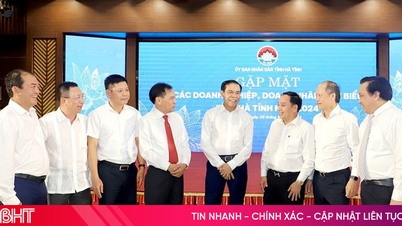


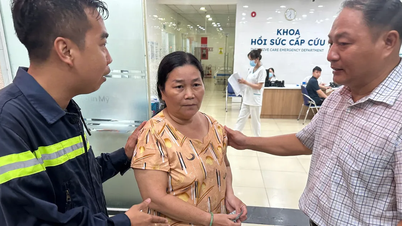


















Comment (0)